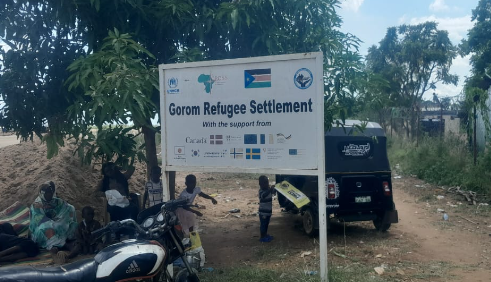A Sudanese refugee in Gorom Refugee Settlement west of Juba City has described the situation at the camp as economically and psychologically torturous.
According to Abdullah Saleh, 29, the already precarious situation of Sudanese refugees is exacerbated by the loss of communication with their relatives in Darfur and other parts of Sudan whose fate they do not know about.
Saleh who has three other brothers in Gorom, told Radio Tamazuj Friday that he fled with his family from Nyala town in Sudan’s South Darfur State in search of safety following the outbreak of clashes between the army and the Rapid Support Forces (RSF) on 15 April.
He narrated that they left Nyala on 22 May after violent clashes and fled to El Daein, the capital of East Darfur State, from where they moved to the Muglad and on to El Merriem and finally to the Kwajok and Aweil in South Sudan.
“It was a very difficult journey, but we thank God we made it safely,” he said. “I arrived with my brothers in South Sudan but my wife is still in Sudan and I cannot speak to her due to the lack of telephone communication network in Sudan.”
He stated that the number of Sudanese refugees in Gorom which has been hosting refugees from the Democratic Republic of Congo (DRC) since 2009 is very large and services are insufficient.
He described the humanitarian conditions in Gorom camp as “tragic,” noting that the United Nations High Commission for Refugees (UNHCR) provides some assistance after registering individuals.
“The refugees receive flour, mattresses, and oil,” he explained. “There is also a hospital that provides some treatment but it does not treat critical cases. Rather, the patient is transferred to Juba.”
Saleh said UNHCR is working to provide education opportunities but that the curriculum is in English and differs from the official curriculum in Sudan which is in Arabic.




